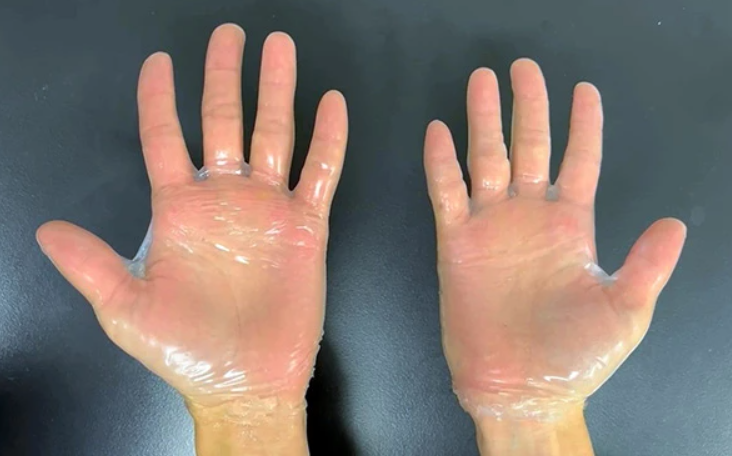In a tale that seems straight out of a sci-fi novel, three high school students from Tokyo Metropolitan Tama High School of Science and Technology have wowed the scientific community with their groundbreaking invention: recyclable gloves made from seaweed slime. Shuhei Otsuka, Takumi Kaneko, and Reo Nishihira, all third-year students, have captured the prestigious Denka prize at the Japan Science & Engineering Challenge (JSEC) 2023 for their innovative creation.
The journey to their discovery began with a fascination with alginic acid, a dietary fiber found in seaweed that gives it its slimy texture. Initially, the trio set out to create plastic from alginic acid, but the task proved to be more challenging than they anticipated. However, in a serendipitous moment, Nishihira dipped his finger into an aqueous solution of sodium alginate and then into an aqueous solution of calcium chloride, only to find his finger covered in a gel-like layer of transparent, gooey calcium alginate.
Inspired by this accidental discovery, the students embarked on a mission to create gloves that could fit anyone’s hands perfectly. They surveyed over 120 workers in industries such as restaurants and nursing care to understand their needs and set out to develop comfortable and practical gloves. After numerous experiments with different aqueous solution concentrations, they succeeded in creating gloves that are not only strong enough for various tasks but also shield the wearer’s hands from heat and cold without feeling stuffy.
One of the most remarkable aspects of their invention is its recyclability. The gloves can be reverted to their original sodium alginate form by soaking them in an aqueous solution of sodium carbonate, making them an eco-friendly alternative to traditional gloves.
Their achievement did not go unnoticed. On March 8, the students were invited to visit Denka Co.’s research facility, where they were awarded a certificate of merit. Nobuyuki Yoshino, Denka’s managing executive officer, praised the students for their approach, saying, “The way you conducted a survey and tried to meet demand is wonderful. I hope you will keep progressing with this for a long time, even though you will have to keep experimenting and making mistakes.”
Despite the challenges they faced, including moments of doubt and the temptation to give up, the students remained dedicated to their goal. Kaneko shared, “I wished many times to give up on this, but I have managed to stay the course because I saw how other students marveled at our experiments.” Otsuka added, “I hope we can improve the thickness and strength, and develop commercial products like, for example, antimicrobial gloves and moisturizing gloves.”
With their innovative spirit and determination, these young scientists are not only making waves in the scientific community but also inspiring others to think outside the box and push the boundaries of what is possible.
(Source: Asahi Shimbun)









